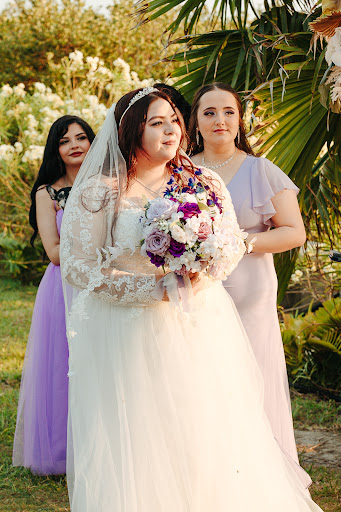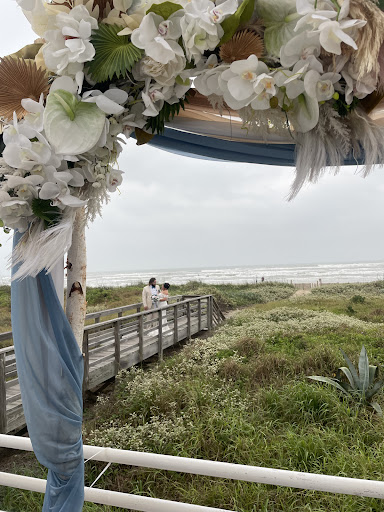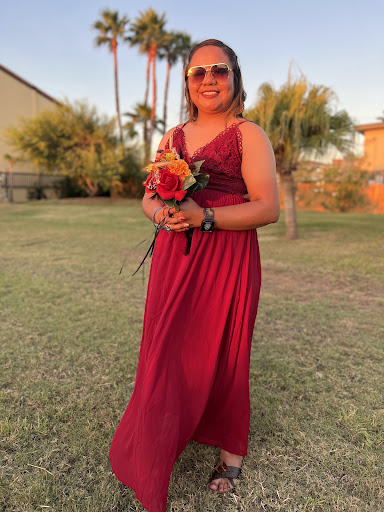Many couples find themselves overwhelmed by the costs associated with planning their wedding, but creating a budget doesn’t have to be a daunting task. By outlining your priorities and being mindful of your spending, you can craft a financially sound plan that allows you to celebrate your special day without undue stress. In this post, you’ll learn effective strategies to establish your wedding budget, allocate funds appropriately, and make smart choices to keep your costs under control while still achieving the wedding of your dreams.
Key Takeaways:
- Establish Priorities: Determine what aspects of the wedding are most important to you and allocate your budget accordingly.
- Research Costs: Gather information on average expenses for venues, catering, and other services to create a realistic budget and avoid overspending.
- Create a Contingency Fund: Set aside a portion of your budget for unexpected expenses to ensure you stay on track financially during the planning process.
Understanding Your Financial Situation
A solid understanding of your financial situation is the first step in creating a successful wedding budget. By evaluating your earnings, expenses, savings, and any contributions from family, you will gain insight into what you can realistically allocate for your dream day. This clarity will help you avoid overspending and allow you to prioritize the elements of your wedding that matter most to you.
Assessing Your Current Finances
Current financial assessment involves taking a detailed look at your income, savings, and outstanding debts. Start by listing all sources of income, including salaries, bonuses, and any side gigs. Next, inventory your savings and identify any funds dedicated to the wedding. Finally, be honest about your existing debts and monthly expenses to gauge how much you can comfortably set aside for your wedding without straining your finances.
Setting a Realistic Budget Limit
If you want to ensure your wedding budget is sustainable, setting a realistic limit is important. Evaluating your financial assessment will guide you in determining a figure that reflects both your aspirations and fiscal capabilities.
To set a realistic budget limit, consider your financial assessment results and identify what you are comfortable spending for your wedding. Factor in potential income from friends or family and decide which elements are most important to you. Prioritize spending on areas that matter most, such as venue, catering, or attire. Lastly, ensure this budget allows for unexpected expenses by including a small buffer, so you can enjoy your special day without financial stress.
Key Factors to Consider in Wedding Planning
Some key factors to consider in your wedding planning process include:
- Your overall budget
- The size of your guest list
- Your ideal venue
- Season and timing of the wedding
- Vendor availability and prices
Knowing these elements will help you create a realistic plan that aligns with your vision while keeping costs in check.
Prioritizing Your Wedding Expenses
The best way to manage your wedding costs is by prioritizing expenses that matter most to you. This involves discussing with your partner about what elements are non-negotiable, whether it’s the venue, catering, or photography. By deciding together, you can allocate your budget effectively, ensuring that funds go towards creating the day you’ve always dreamed of.
Hidden Costs to Anticipate
Even with a well-thought-out budget, hidden costs can sneak up on you during your wedding planning. These might include gratuities for vendors, overtime fees for the venue, or costs related to wedding attire alterations. It’s vital to account for these potential expenses as they can significantly impact your overall budget.
Planning for hidden costs means taking a closer look at your contracts and having candid conversations with vendors. Ask them about any additional fees that could arise, such as setup or breakdown costs. It’s also wise to include a contingency fund, typically around 10-15% of your budget, to cover unforeseen expenses. This proactive approach will help you enjoy your special day without financial stress.
Tips for Allocating Your Wedding Budget
Once again, careful planning can help you allocate your wedding budget effectively. To make the most of your finances, consider prioritizing your spending based on what matters most to you. Here are some tips for budget allocation:
- Identify your top three priorities for the wedding
- Set aside a contingency fund for unexpected expenses
- Research average costs for each category in your area
- Keep track of every expense as you go
Recognizing your priorities will guide you in making thoughtful financial decisions.
Standard Percentage Breakdown
Some couples find it helpful to follow a standard percentage breakdown for their wedding budget. This guide typically suggests allocating about 50% for the venue and catering, 10-12% for photography, 10% for attire, and the remainder for other aspects like entertainment and flowers. These percentages can serve as a baseline to help you gauge spending in each category, ensuring you cover crucial elements without overspending.
Customizing Your Budget for Personal Needs
Percentage breakdowns are a great starting point, but it’s crucial to customize your budget based on your unique preferences and needs. Consider what reflects your personal style and the experience you want to create for you and your guests.
Wedding budgets should be a reflection of your individual priorities and personal values. If you value an exquisite meal over elaborate decor, adjust your allocations accordingly. Couples with specific cultural or family traditions may also need to account for additional costs. Tailoring your budget allows you to create an unforgettable event that truly represents your vision while staying within your financial limits.
How to Cut Costs Without Compromising Quality
Despite the myriad of expenses associated with weddings, you can cut costs without sacrificing quality. Focus on prioritizing key elements that truly matter to you and find alternatives or make adjustments in other areas. By being strategic about your choices and planning ahead, you can create a beautiful and memorable day that honors your vision while being wallet-friendly.
Smart Choices for Venue and Catering
Costs associated with venues and catering often form the largest part of your wedding budget. Opt for a less traditional venue such as a public park or a family member’s backyard, and consider buffet-style meals or food trucks instead of a formal sit-down dinner. This not only saves money but can also create a relaxed atmosphere for you and your guests.
Creative Solutions for Décor and Attire
Even with a limited budget, you can find inventive ways to achieve the wedding décor and attire of your dreams. Explore bulk buying options for flowers, use seasonal blooms, or even create your own centerpieces. For your attire, consider rental options or purchasing from discount bridal shops, allowing you to look stunning without the hefty price tag.
This is your opportunity to showcase your personal style creatively. Utilize DIY projects for décor, such as handmade table settings and personalized signs. You might also encourage your friends and family to contribute items like vintage décor or family heirlooms. For attire, consider mixing high and low, wearing a beautiful but affordable wedding gown paired with accessories that hold sentimental value. Your wedding can be stunning and unique, reflecting your personality without excessive spending.
Research and Comparison Shopping
Not every wedding vendor is created equal, which is why thorough research and comparison shopping are vital in creating a budget-friendly wedding. By exploring multiple options, you can identify which vendors offer quality services within your desired price range. Utilize the table below to streamline your vendor evaluations:
| Vendor Type | Key Questions to Ask |
|---|---|
| Caterers | What are your package options and added fees? |
| Florists | Do you have seasonal specials or package deals? |
| Photographers | Can you provide a breakdown of your pricing? |
| Venues | Are there off-peak rates available? |
Finding the Best Deals
Assuming you conduct thorough research, you can uncover fantastic deals that align with your budget. Comparing services and pricing allows you to make informed decisions and potentially save money during the planning process.
Leveraging Vendor Negotiation Tactics
Any time you engage with wedding vendors, negotiation can help you secure better rates or added perks. Being polite yet firm in your discussions can lead to discounts and concessions that align with your budget.
To maximize your negotiation efforts, be transparent about your budget constraints and ask vendors if they can match or beat competitor pricing. Offer to refer them to friends or family or provide testimonials on your social media channels. Many vendors are open to negotiations, especially during the off-season or if you can book multiple services together. Establishing a friendly rapport can also make them more amenable to adjusting their offerings, ultimately allowing you to craft a more affordable wedding experience without sacrificing quality.
Staying on Track with Your Budget
Keep a close eye on your spending to ensure you stay within your budget. Regularly review your financial plan and track expenses to avoid any surprises. Designate a comfortable time to assess your budget, allowing for any necessary adjustments. Maintaining discipline in your spending habits will help you achieve the wedding of your dreams without financial stress.
Monitoring Your Expenses
Clearly document every expense, no matter how small, to maintain a complete picture of your budget. Utilizing spreadsheets or dedicated budgeting apps can assist in tracking costs effectively. This will provide you with the ability to analyze your spending patterns and discover areas where you could potentially cut back without sacrificing your dream wedding.
Adjusting Plans as Needed
Some flexibility is crucial when it comes to your wedding plans. If your expenses exceed your initial budget, be open to reevaluating certain elements. This could mean changing the venue, trimming your guest list, or opting for a simpler menu, all of which can lead to significant savings while still delivering a memorable celebration.
Expenses can often fluctuate as you finalize your wedding plans, so being prepared to adjust is vital. Review your priority items and what matters most to you and your partner. Consider compromises that don’t diminish your overall vision. For instance, if catering costs are high, you might switch to a buffet style or a cocktail reception instead of a sit-down dinner. Being adaptable will help you maintain your budget without sacrificing the joy of your special day.
To wrap up
Drawing together a wedding budget doesn’t have to be daunting. By prioritizing your needs, researching vendors, and remaining flexible, you can orchestrate a beautiful celebration that reflects your vision and stays within your financial means. Establish a clear spending plan and track your expenses diligently, allowing you to enjoy your special day with peace of mind. With these strategies in mind, you’ll create a memorable occasion without straining your finances.








































